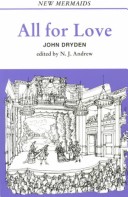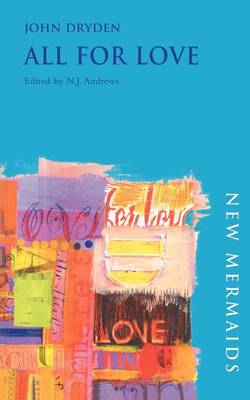New Mermaids
1 primary work • 3 total works
Like Dryden's...
Read moreLike Dryden's best tragicomedies, Marriage a la Mode has a double plot. The hopes that marriage excites and the regrets it suffers, the possibilities it opens and the opportunities it denies, its potential nobility and its vulnerability to decay provided Dryden with plentiful dramatic material. Comedy and pathos intersect in plots that entangle and surprise like marriage itself.
Although John Dryden the poet is best known for his alexandrine epics, John Dryden the playwright is most honored for this blank verse tragedy. The summit of Dryden's dramatic art, All for Love (1677) is a spectacle of passion as felt, feared, and disputed in the suspicious years following...
Read moreAlthough John Dryden the poet is best known for his alexandrine epics, John Dryden the playwright is most honored for this blank verse tragedy. The summit of Dryden's dramatic art, All for Love (1677) is a spectacle of passion as felt, feared, and disputed in the suspicious years following the English Civil War.
Due to its dramatic compression and elegance, All for Love is one of the most enduring plays of the Restoration repertory. It was so successful that in the eighteenth century Dryden's tragedy drove Shakespeare's Antony and Cleopatra from the stage.
The play depicts the catastrophic passion of Cleopatra and Marc Antony, who could not be conquered but by love. Fidelity to family and friends, adherence to codes of honor, national loyalties, and the rule of law compete with each other, tearing the world with violence.


